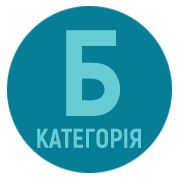LINGUOCULTURAL CONCEPTS IN THE MODERN TOURIST ONLINE-MAGAZINES
DOI:
https://doi.org/10.32782/2307-1222.2024-57-23Keywords:
linguocultural hyperconcepts and ethnospecific concepts, tourism, rest, trip, hospitality, nature, online magazinesAbstract
The article deals with common linguocultural hyperconcepts and relevant nationally-specific concepts of Ukrainian, English and French tourist discours, which are included in their semantic field. This study was carried out using elements of descriptive and conceptual analyses, as well as taking into account the peculiarities of certain linguoculture and specific context, communicative situation and historical basis (prehistrory). The translation technique has been applied to illustrate the difference between the way of expression and that of perception in different linguocultures. The most frequently occurring hyperconcepts (“tourism”, “happiness”, “beauty”, “hospitality”, “nature”) embrace the following concepts: “tourism” – “trip”, “rest”, “consumption”, “quality of tourism”, “road”, “adventure”; “happiness” – “positive emotions”, “entertainment”, “benefit”; “beauty” – “tourist attractiveness”. The analysis of the selected corpus of examples showed the existance of a significant number of common concepts in the touristic discourse, but their functioning is modified by national realities. Thus, we distinguished the following concepts with the relevant thematic hyperconcepts refer to the national identity hyperconcepts: “Ukrainianness”, “Frenchness” or “Englishness”: “hospitality” – “accommodation”, “food”, “societу”, “national cuisine” (in particular, “gourmandism”, “wine”, “wine-making”); “culture” – “landmarks”, “historicity”; “nature” – “weather”, “forest”, “village”, “countryside” and other. In Ukrainian linguoculture prevail such concepts as “hospitality”, “culture”, “adventure”, “society”, “nature”, “road”. In French and English ones prevail “consumption”, “benefit”, “unicity”, “historicity”, “privacy”, “village”, “countryside”. In each culture there are ethnospecific lacuna expressing the particular features of a certain nation and they are usually rendered by means of transliteration (like names of dishes or landmarks). In such way, tourist online magazines are the source of significant amount of cultural background information of concepts and perform not only entertaining but also developing and cultural-educative function.
References
Галинська О.М. Ключові етноконцепти крізь призму лінгвокультур (на матеріалі української та англійської народної фразеології). Вчені записки ТНУ імені В.І. Вернадського. Серія: Філологія. Журналістика. Том 31(70). № 4(3), 2020. С. 99–105.
Єфименко О.Е. Концепт «степ» в українській мові: словникова, текстова і психолінгвістична парадигма : дис. … канд. філол. наук : 10.02.01. Харків. нац. пед. ун-т імені Г.С. Cковороди. Харків, 2005. 266 с.
Жайворонок В.В. Знаки української етнокультури : словник-довідник. Київ : Довіра, 2006. 703 с.
Кононенко В. Концепти українського дискурсу. Київ–Івано-Франківськ, 2004. 248 с.
Потапчук С.С. Лінгвокогнітивний і лінгвокультурологічний підходи до вивчення концепту у сучасному мовознавстві. Актуальні проблеми сучасної філології. Мовознавчі студії : збірник наукових праць Рівненського державного гуманітарного інституту. Рівне : РДГУ, 2007. № 15. С. 104–109.
Пліс В.П. Типологія концептів у сучасній когнітивній лінгвістиці. Закарпатські філологічні студії : науковий журнал / голов. ред. І.М. Зимомря. Ужгород : Видавничий дім «Гельветика», 2019. Т. 1. Вип. 9. С. 115–119.
Письменна Ю.О. Етнічні особливості концептуалізації дійсності мовами європейського культурного ареалу (на матеріалі лексики і фразеології української, російської, англійської та італійської мов) : дис. … кандидата філол. наук : 10.02.15. Київ, 2008.
Саєвич І.Г. Ключові концепти культури: критерії виокремлення. Матеріали Міжнародної наукової конференції 10–12 жовтня 2013 р. С. 249–254. URL: http://elibrary.kubg.edu.ua/id/eprint/2406/1/I_Sayevich_konf_GI.pdf.
Ліпінська В.В. Особливості англійської та української терміносистем у галузі міжнародного туризму. Вісник НТУУ «КПІ». Філологія. Педагогіка : збірник наукових праць. 2014. Вип. 3. С. 37–43.
Langacker R.W. Grammar and conceptualization. Berlin, New York : Mouton de Gruyter, 2000. Р. 30–53.
Sweetser E. From etymology to pragmatics: metaphorical and cultural aspects of semantic structure. Cambridge : Cambridge University Press, 2001. 174 p.
Talmy L. Toward a Cognitive Semantics. Cambridge, MA : MIT Press, 2000. 566 p.
Голубовська І.О. Етнічні особливості української національно-мовної картини світу. Studia Linguistica. 2010. Вип. 4. Київ, 2010. С. 400–412.
Зима О.Г., Кузьминчук Н.В. Інсентив-туризм як приклад успішного менеджменту організацій. Економічна стратегія і перспективи розвитку сфери торгівлі та послуг. 2012. Вип. 1(2). С. 275–282.
Приходько А.М. Концепти і концептосистеми в когнітивнодискурсивній парадигмі лінгвістики. Запоріжжя : Прем’єр, 2008. 332 с.
Косович О.В. Особливості французької лінгвокультури на матеріалі фразеологічних одиниць, які репрезентують лексичний концепт le vin («вино»). Вчені записки ТНУ імені В.І. Вернадського. Серія: Філологія. Соціальні комунікації. Том 31 (70). № 4. Частина 3, 2020. С. 200–207.










